Published: July 5, 2023 | Last Updated on: July 7, 2023 | by Hema
As a parent, you may constantly seek out new and healthy foods to introduce to your baby’s diet. Agar agar, a popular plant-based gelatin substitute derived from seaweed, has gained attention for its various culinary applications. However, when it comes to feeding it to your baby, there are some factors to consider. In this blog post, we will explore whether or not you can give agar agar to your baby and provide some guidelines for introducing it safely into their diet. Here is the detailed answer to the most often asked question, Can I give Agar Agar to Baby?
Jump To hide What is Agar Agar? Health benefits Of Agar Agar Can I give Agar Agar to Baby? Preparing Agar Agar for Your Baby: Safety Precautions: Buy Healthy Nutritious Baby, Toddler food made by our own Doctor Mom !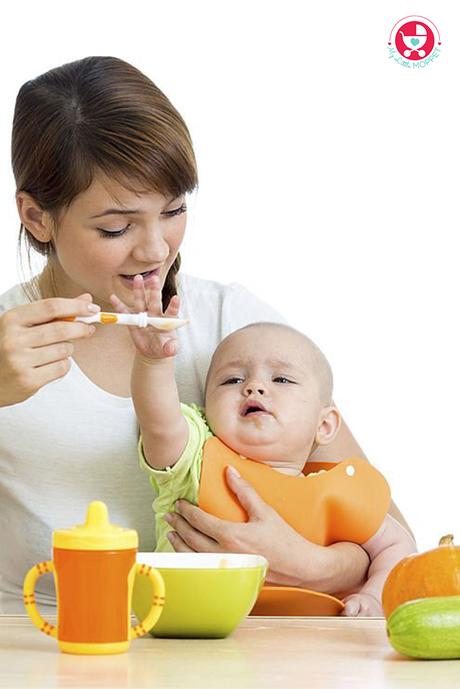
What is Agar Agar?
Agar agar is a type of gelatinous substance derived from seaweed. It is commonly used as a vegetarian alternative to gelatin in various culinary applications. Agar agar is obtained from red algae, particularly species belonging to the genera Gelidium, Gracilaria, and Pterocladia.
The seaweed is typically harvested, washed, and then boiled in water to extract the agar agar. Afterward, the mixture is filtered to remove impurities, and the liquid is cooled and solidifies into a gel-like substance. Agar agar is composed primarily of polysaccharides, specifically agarose and agaropectin, which give it its gelling properties.

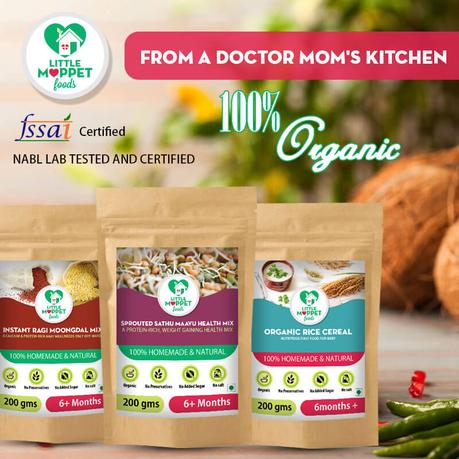
In cooking, agar agar is often used as a thickening agent, stabilizer, or gelling agent in various food preparations such as desserts, jellies, puddings, custards, and even savory dishes. It has the advantage of being able to set at room temperature and has a higher melting point than traditional gelatin, making it suitable for warmer climates or dishes that require stability at higher temperatures.
Agar agar is available in various forms, including powder, flakes, and bars. It is odorless, tasteless, and colorless, allowing it to be easily incorporated into different recipes without altering the flavor or appearance of the final product.
Health benefits Of Agar Agar
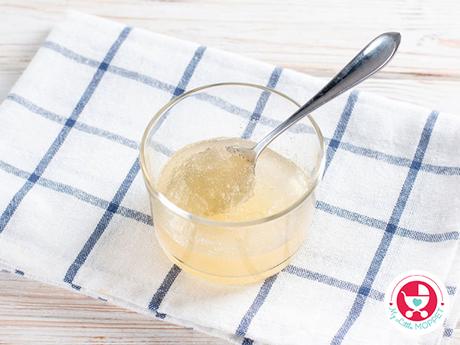
Agar agar can have several potential health benefits for children when consumed as part of a balanced diet. Here are some potential benefits:
1. Nutrient Source: Agar agar is a good source of dietary fiber, which can help support healthy digestion and prevent constipation in children. It adds bulk to the stool and promotes regular bowel movements.
2. Weight Management: Agar agar is low in calories and can contribute to a feeling of fullness, which may help children maintain a healthy weight by reducing overeating or snacking between meals.
3. Digestive Health: The soluble fiber in agar agar can act as a prebiotic, providing nourishment for beneficial gut bacteria. This can support a healthy gut microbiome and enhance digestive function.
4. Blood Sugar Control: Agar agar has a low glycemic index, meaning it does not cause a rapid spike in blood sugar levels. This can be beneficial for children who need to manage their blood sugar levels, particularly those with diabetes or at risk of developing diabetes.
5. Allergy-Friendly: Agar agar is a vegetarian and vegan alternative to gelatin, making it suitable for children who follow plant-based diets or have allergies or sensitivities to animal products.
Hydration Support: Agar agar can absorb and retain water, which can be useful in preventing dehydration, especially during hot weather or when children are sick and need to maintain adequate fluid intake.
Can I give Agar Agar to Baby?
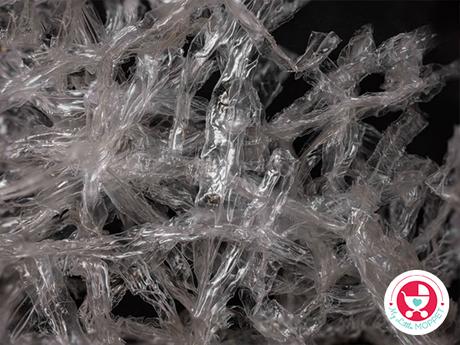
It’s important to note that the American Academy of Pediatrics recommends waiting until your baby is at least six months old before introducing solid foods. Before this age, breast milk or formula milk provides all the necessary nutrients for your baby’s growth and development.
Agar agar is not typically recommended as a first food for babies. It is important to follow the recommended guidelines for introducing solid foods to infants, which usually begins around 6 months of age. At this stage, the focus should be on introducing nutrient-dense foods that are appropriate for their developmental stage and nutritional needs.
Babies typically start with simple, single-ingredient purees such as fruits, vegetables, rice, dal etc,. As they progress and show readiness for more varied textures, mashed or soft foods can be introduced. Agar agar, being a gelling agent, is not typically included in the early stages of introducing solid foods.
Though agar agar is good to be introduced after 6 months completion, it’s best to introduce once the baby is ready for finger food or after first birthday. It has to be fed under parental guidance only.
Preparing Agar Agar for Your Baby:
- Choose high-quality agar agar: Ensure that the agar agar you select is of high quality, free from additives or preservatives. Organic varieties are generally a safe choice.
- Start with small amounts: Begin by introducing a small quantity of agar agar to assess your baby’s tolerance and any potential allergic reactions. Start with just a pinch or a very small piece and gradually increase the amount as your baby becomes accustomed to it.
- Proper preparation: Agar agar needs to be dissolved in water or another liquid before use. Follow the instructions on the package to prepare it correctly. Keep in mind that agar agar sets quickly, so be prepared to use it immediately after it has cooled and solidified.
- Mix with other foods: To make it more appealing for your baby, mix the agar agar with pureed fruits or vegetables. This will not only enhance the taste but also add more nutrients to their meal.
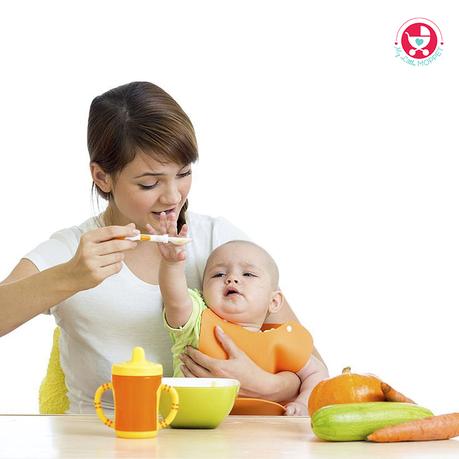
Safety Precautions:
- Allergy check: Before introducing agar agar to your baby, check for any family history of seaweed or iodine allergies. If such allergies exist, it’s advisable to avoid agar agar altogether.
- Choking hazards: As with any solid food, be cautious of potential choking hazards. Ensure that the agar agar is properly dissolved and smooth before serving it to your baby.
- Digestive concerns: Agar agar is rich in fiber, which may cause some digestive discomfort for babies if consumed in large quantities. Monitor your baby’s reaction and consult your pediatrician if you notice any digestive issues.
While agar agar can be a nutritious addition to your baby’s diet, it is crucial to follow the recommended guidelines before introducing it. Start with small amounts, ensure the agar agar is properly prepared, and mix it with other baby-friendly foods. Always prioritize your baby’s safety and well-being when introducing new foods into their diet. If you have any concerns or questions about introducing new foods, including agar agar, to your baby, it is best to consult with a pediatrician or a registered dietitian. They can provide guidance specific to your baby’s developmental stage, dietary needs, and any potential allergies or sensitivities they may have.

Here are some interesting recipes for you. In recipes which contains sugar, you can replace it with dates powder or jaggery when making for kids. For babies below 1 year and above 6 months, fruit purees can be added as a natural sweetener.
Agar-Agar Pudding – flavours of my kitchen
Mango Cheese Cake with Agar Agar – Cooking from heart
Agar Agar Jelly Recipe – Greedy Girl Gourmet
Vanilla & Chocolate Pudding Recipe with Agar Agar – Yummy Tummy Aarthi
Coconut Dream Dessert – Manjula’s Kitchen
Agar Agar pudding – Sify Bawarchi

Buy Healthy Nutritious Baby, Toddler food made by our own Doctor Mom !
Shop now!You may also like
- Baby Falling Off the Bed: How to give First Aid and Keep…

- When Can I give my Baby Cow's Milk ?

- Can I Give my Baby Nuts?
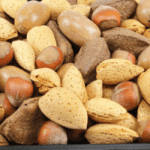
- Can I give my Baby Coconut?

- What Rice can I give my Baby?
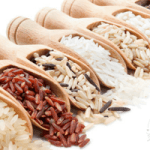
- Can I give my Baby Makhana?
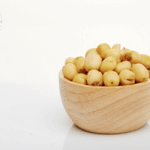
Filed Under: Can I give my Baby? Tagged With: Agar agar feeding guidelines, agar agar recipes, Agar agar uses, Can I give agar agar to baby?
